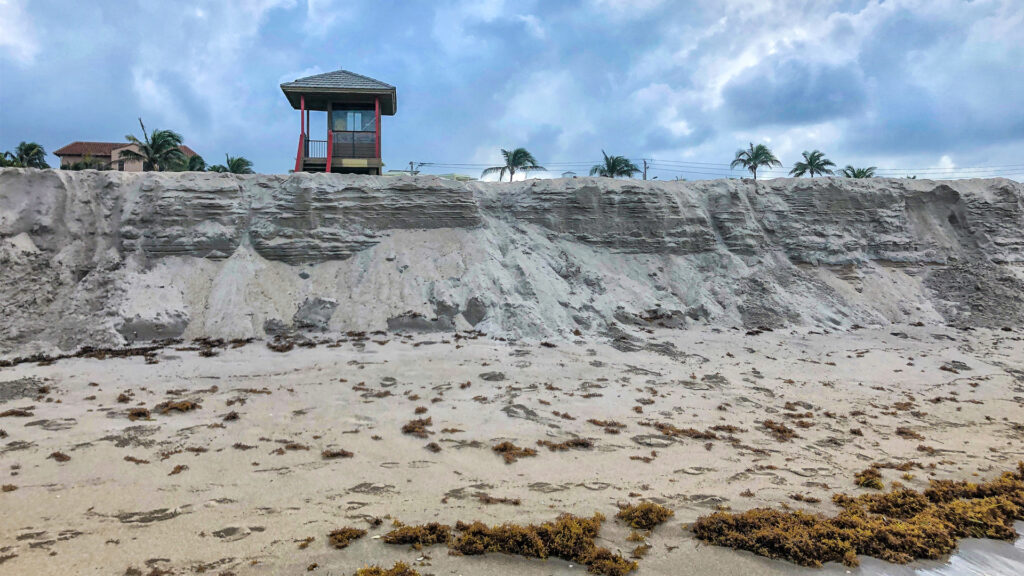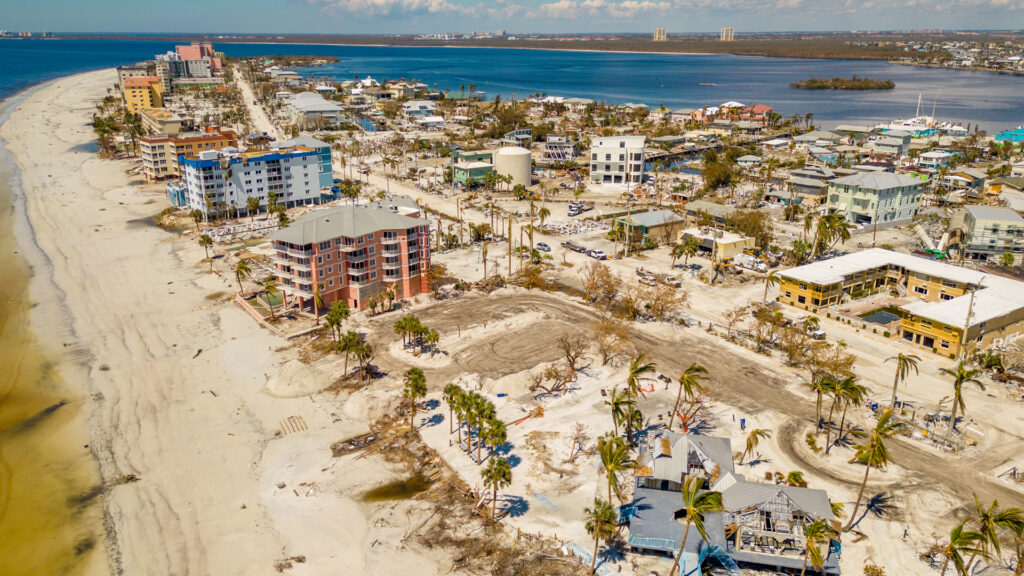By Elisabeth Gaffney
A new report gave Florida a low grade for coastal management following Hurricane Ian, but officials in coastal communities argue that it doesn’t take into account their efforts to protect coastlines from erosion.
The Surfrider Foundation’s 2023 State of the Beach Report gave the state a D- in coastal management – a drop from its 2022 C- grade. In its annual State of the Beach Report, Surfrider grades states on their management of coastal resources and planning for sea-level rise.
Based in California, the Surfrider Foundation is a nonprofit organization that advocates for improving coastal management and protecting coastal and ocean resources. The group’s latest report states that Florida “has some of the most remarkable coasts in the world” but that in 2023 the state “took regressive steps to protect these treasured coastlines.”

Surfrider bases its grades on scoring states from “Good” to “OK” to “Bad” on their efforts in four categories: coastal armoring, development, sea-level rise and sediment management. Florida scored “OK” in sediment management and “Bad” in the other three categories.
But some Florida officials in coastal communities question the report’s conclusions. Surfrider isn’t taking into account that Florida beaches are very diverse, and each county has a different approach to coastal resiliency, said Michael Stahl, deputy director of Palm Beach County’s Environmental Resources Management department.
Stahl said he thinks the group is “just consolidating a bunch of apples and oranges into one grade.
“I think if I (were) just looking at Palm Beach County’s program, it would probably score a little differently,” he said.
The report based the grade in part on measures passed by state lawmakers after Hurricane Ian caused billions of dollars of damage in Southwest Florida. They include a taxpayer-funded program to reimburse private homeowners to build seawalls, which the report calls an “egregious use of public funds.”
Florida is putting significant funding toward resilience efforts, but there are still setbacks, said Jacob Rice, the Broward County Resilience Office’s beach program manager.
“I would say there’s a lot of money being pumped into Florida beaches,” Rice said, but coastal communities face a “battle (with) nature” due to hurricanes and other weather events contributing to coastal erosion.
The Surfrider report criticizes state lawmakers’ efforts to address this problem, specifically a hurricane relief package passed in 2023 after Hurricane Ian. The measure uses taxpayer dollars to build shoreline stabilizations such as seawalls and jetties for private properties.

“It does nothing to support the functional resilience of coastal habitats,” said Emma Haydocy, Surfrider’s policy manager. “And in doing so, it is proven and it’s even in guidance from state agencies that coastal armoring has negative impacts on the beach; it accelerates and exacerbates erosion adjacent to it.”
Haydocy said that paying for private properties to build seawalls “is an inappropriate use of state funds, particularly because it’s being granted directly to homeowners. So it really is not benefiting the public at large but solely those individuals who have been impacted.”
Deborah Drum, director of the Palm Beach County Environmental Resources Management department, there are misconceptions about coastal management programs in the state. Drum said the county’s program “is not focused on protecting private property.
“That’s one misconception that we always try and clarify whenever we’re talking about programs; we’re focused on management of natural resources,” she said.
Both counties are focused on sand dune coverage, because dunes provide natural protection from large waves that cause coastal erosion. The report notes that Florida relies heavily on sand replenishment and would benefit from drastically increasing funding to implement dune restoration and living shoreline projects to lessen its need for beach fill.
It found that “Florida has decent regulations to guide development” but there are loopholes that should be closed. The report also recommends other changes, such as incentivizing nature-based solutions and coastal restoration.
“We’re off to a good start, and we need to keep moving in that direction,” Haydocy said.
Elisabeth Gaffney is a junior multimedia journalism major at Florida Atlantic University.
Sign up for The Invading Sea newsletter by visiting here. If you are interested in submitting an opinion piece to The Invading Sea, email Editor Nathan Crabbe at ncrabbe@fau.edu.



